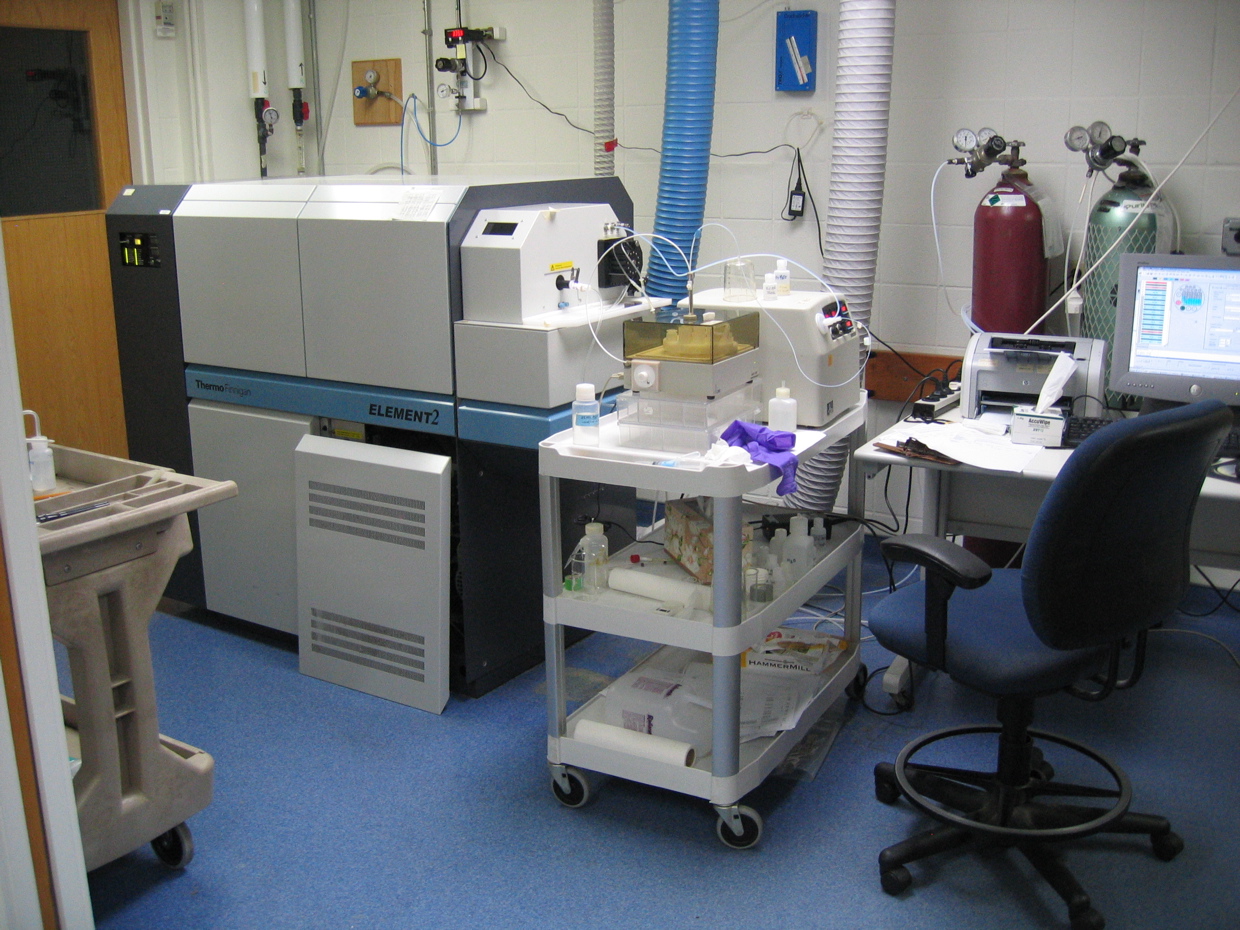 |
| The Element2 mass spectrometer at WHOI. Image taken from here. |
In recent years, I have found that my reading habits have changed somewhat. Since childhood, I have been in the habit of reading every night before bed. I still read most nights before bed, but I'm afraid that both the quantity and the "quality", so to speak, of my reading has degraded since I started graduate school.
The degradation of quantity is easy to explain. I just don't have as much time and energy for reading. As for the "quality" of my reading, I read far more "serious" books in high school and undergrad than I do now in graduate school. There are dozens of non-fiction books about geology on my reading list, but I find that I only read two or three of these books a year. Instead, I read science fiction, fantasy, and mystery novels. At least, this is what I read in my free time. I guess that if you count research for my thesis, I do read a fair amount of non-fiction geology in the form of papers, research books, and others students' theses. I think all the reading I do for my PhD research leaves my brain somewhat tired. Much as I want to select (looking at my bookshelf) a book such as "Volcanoes of the Solar System" for my nightly reading, I am much more likely to pick up a fantasy or mystery novel.
In addition to being a bit burnt out from all my reading for my PhD, another reason I select somewhat lighter books these days is that much of the time I have for reading I also need to periodically be paying attention to other things-- namely, chemical separation columns and mass spectrometers.
For example, on Wednesday I spent 10 hours measuring uranium and thorium concentrations on the Element2 Mass Spectrometer here at WHOI. 10 hours is actually a very short day for me on the Element2. Normally, when I run this mass spectrometer I run for 14-16 hours. There are two reasons for this. First, you pay about $1000 per day to use the machine, so you want to maximize this time. Second, it takes two or three hours to set-up and tune the machine. Once the machine is tuned, you want to run as many samples as you can.
When the Element2 is running poorly, I have to pay close attention to every sample and continually re-tune the machine. However, when the machine is running well-- as it was on Wednesday-- I have about three minutes of waiting time for every blank, standard, and sample I run. I still need to stay at the machine in case there is a problem (unfortunately my samples are too valuable for me to risk automating the analysis), but I don't have to pay close attention.
I have tried doing various "productive" things during this waiting time such as reading journal articles, reducing data, and writing parts of my thesis. However, I have found that trying to be "productive" during the waiting time is futile. Three minutes isn't enough time to focus and make progress, so I just end up re-reading the same sentence of a paper a dozen times. So, after the first two times I ran the mass spectrometer I gave up on trying to do "productive" activities during this waiting time. However, I found that just sitting there for those three minute stretches (for 12+ hours) is mind-numbingly boring. So, I have found that reading a book-- the type of book that can easily be picked up and put down-- is a good solution.
Certain types of science fiction, fantasy, and mystery books are perfect for this "pick up and put down" reading. Last year, I made my way through the Sword of Truth fantasy series, much of which I read while waiting for a column to drip or a mass spectrometer to analyze an isotope. Currently, I am making my way through the Elizabeth Peters Egyptian mystery novels. I anticipate that the Peters novels will carry me through the rest of my labwork this year.
 |
| The Sword of Truth fantasy series. Image from Wikipedia. |
 |
| The first Elizabeth Peters Egyptian mystery novel. Image taken from here. |

No comments:
Post a Comment